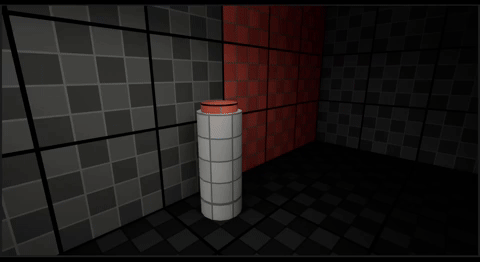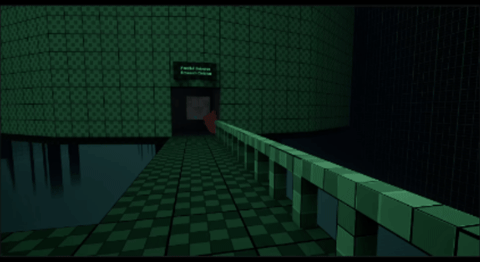Portal : P.U.R.D
(Parallel Universe Research Division)
I created Portal : P.U.R.D as apart of a short 3 week course run by the organisation Into Games. The course was led by a senior level designer in industry known as Oliver William Walker and we received guest lectures by Principle level designer Jack Chapmen and Max Pears.
The goal for this project was to create a level for an unreleased valve title. I took inspiration from Portal and decided to create something with a similar atmosphere.
On our brief we had a few things we had to adhere to, the level could not last any longer than 10 minutes and we had to use a specific 'ingredient'. The ingredient we were told to use was a trigger with an audio attached to it. My interpretation of this ingredient was to use a sound whenever the levels 'universe' would change. (This can be seen better in the gameplay video)
.png)
As this course was only 3 weeks I only had limited time to produce the level as well as do any pre-production for it. As I was inspired by Portal for my initial idea I wanted my ingredient to give a similar feeling to how the Portal gun did, my initial go to for something like this was creating a mechanic that swapped the universe a player was in, creating similar intrigue to the portal gun.
With my pre-production I started with my initial concept and I wrote down a series of questions to inspire my creative thinking and what ideas I could explore in the level design. I then wrote down a set of goals I wanted to achieve throughout the level.
I then created an intensity graph with key beats to help determine the emotional impact of the level and the pacing, which then lead me to write out the sequence to get a better idea of what beats I need my layout to contain.
Then to finish off my pre-production I created a crude layout I would follow to create my blockout.

Challenges
During the development of this level I ran into a few key challenges that I had to overcome.
-
Initially it was quite hard to come up with a layout and interesting gameplay moments with little mechanics, as all I had was movement and my ingredient set by the brief.
-
Puzzles can be quite hard to design especially in a short time.
-
'Breaking the grid' in a level inspired by Portal which is generally quite grid like in its level design.

I solved these problems in a few different ways.
To solve the first challenge I was having I decided to lend my level a more narrative focus, to raise intrigue and have nice tension building moments even with a simple mechanic. After the player associates the beep sound with the universe changing, I would start to swap the universe at random to hint to the player that something is going wrong in the level.
As well as this I also accompanied this with a camera rumble and sound to heighten tension as the player went through the level, these events would occur more frequently the further through the level.
Me doing this also lent itself to solving my second challenge, puzzle design. I knew my ingredient could be used in a variety of ways in puzzles however due to my limited time I was struggling to come up with anything super interesting, so I decided to pivot my mechanic to make more interesting narrative beats, as discussed earlier.
The next big issue I faced was making the level feel off the grid. Which I did end up struggling with a little bit especially as I was basing my levels off of portal which has a very rigid structure in the levels.
My solution to this mainly lead to placement of objects within my rooms and the structure of the rooms themselves. I found the later into the development of my level the less rigid the rooms and layouts felt as I had gotten a better sense of what I wanted to achieve with the level. As well as this employing techniques like showing the player the goal through holes, windows, great distances also definitely helped make the level feel more natural.
Concluding Thoughts
Throughout the sprint I learned a bunch of stuff and it was very useful learning the processes and techniques of seasoned level designers.
I'm glad I got the opportunity to try and employ these techniques in my own work and I have definitely sharpened my level design skills. Doing this course also helped increase the speed I do my work at as this course was such a short amount of time to develop a level.
I also got better at problem solving especially with limited resources further strengthening my level design skills.


